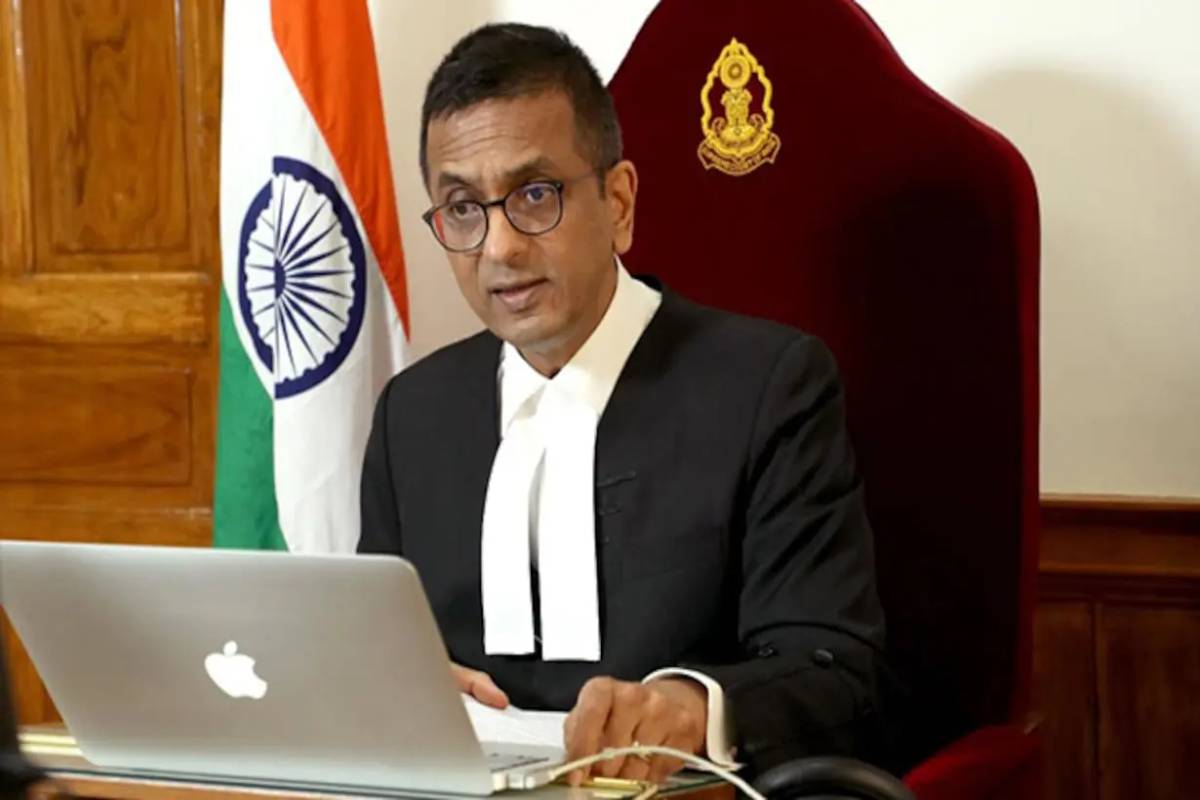Chief Justice of India DY Chandrachud, on Saturday, called on all judges across courts in the country, ranging from district courts to the Supreme Court, to reflect on the constitutional vision of securing justice, equality and liberty.
Stressing on simplification and “citizen centric” litigation process, Justice DY Chandrachud said judges must also reflect upon the Constitutional vision of securing justice, equality, and liberty for all.
Advertisement
The Chief Justice, speaking at the Constitution Day celebrations at the Supreme Court, said: “We have been adopting technology to improve the working of courts. It is of supreme importance and necessity that courts are remodelled to reach out to people instead of people reaching out to courts in their quest for justice.
He said to ensure that courts reach out to people, “it is essential that the process of litigation is simplified and made citizen centric”.
The Chief Justice emphasised that it is important that representation of marginalised communities and women in the legal profession and judiciary is increased.
“There is a need for us to introspect on our actions and decisions and to question our own prejudices and preconceptions. For, until we open our minds to multiple views of persons with varied lived experiences, we would be lacking in our roles as judges,” the Chief Justice said.
He said the district judiciary is the first interface of people with the judicial system and it is necessary that it is strengthened and supported.
“The district judiciary must be lifted from the mindset of being a subordinate judiciary,” the Chief Justice said.
He added that in a nation as large and diverse as India, the “paramount challenge” the judiciary faces as an institution is to ensure that the justice delivery system is accessible to everyone.
The Chief Justice said the judiciary’s engagement with technology gained prevalence during the Covid-19 pandemic, and the infrastructure should not be dismantled rather be built upon.
Justice Chandrachud said, “I will earnestly request the chief justices of high courts to ensure that the technological infrastructure, on which public funds have been spent, is not dismantled but strengthened further.”
He said technology must be augmented with institutional reforms to resolve the chief issue of access to justice. “Our endeavour is to enhance access to justice. This must not be understood in terms of enriching the experience of those who are already in possession of access but by reaching out to those groups and communities that are denied basic rights,” he said.
He said though the Supreme Court is located on Tilak Marg, “the Supreme Court is a Supreme Court for the entire nation”.
Recalling that the colonial and pre-colonial courts followed an approach of reluctance, disinclination, and inaction in protecting the rights of citizens, he said as the CJI he believes it is his responsibility to collaborate and consult judges at the apex court, judges of high courts, members of the district judiciary and stakeholders of the institution.
The Chief Justice also spoke on the e-initiatives – virtual justice clock, JustIS mobile app 2.0, digital court and 3WaaS websites of district courts – launched by Prime Minister Narendra Modi during the function.











